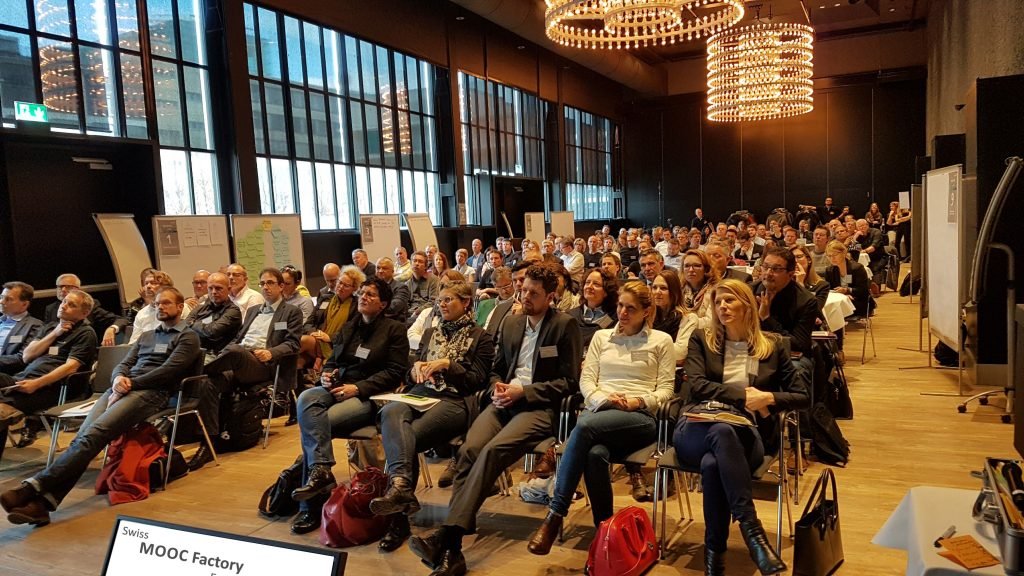
Even in this day and age, not everyone has the means to complete education and training. This is why Massive Open Online Courses (MOOCs) enjoys so much success, predominantly in the USA. Leading educational institutions like the MIT make course contents available to the general public free of charge in web-based learning formats. The topic for the first Swiss MOOC Factory was how the classic concept could be specifically implemented for universities and companies in Switzerland: Over 150 experts from the academic and business arena spoke at the interactive event about the future of online-accessible education and training programmes.
Daniel Stoller-Schai, Head of Sales & Account Management at CREALOGIX Digital Learning, says:
“We are really pleased about the great response we have had to our event. It shows that there is a great need for digital learning solutions and MOOC-based formats in Switzerland too."
Cross-industry opportunities
The benefits of MOOC-based learning formats are considerable. With digitally-accessible contents, Swiss universities can position themselves internationally using online learning. David Shrier, Managing Director of MIT Connection Science, presented an approach for educational institutions. MIT offers 2,300 pieces of learning content via its OpenCourseWare. David Shrier explains:
“We already have over 2 million users. Without the need to register, autonomous students can enrich their life and prepare themselves for the challenges of the future.”
Global companies also benefit from MOOCs. “Between 60 and 70 per cent of internal training has to take place on a learning platform,” believes Markus Simon, Global Head Digital Learning and CS Alumni Network at Credit Suisse. CREALOGIX Digital Learning supports financial institutes in developing and carrying out learning formats with the MOOC-based Swiss Learning Hub in the area of compliance and leadership, among others. This allows bank employees to access up-to-date learning content easily and everywhere. Industries heavily impacted by shortages of skilled workers, such as health care, also benefit from this approach. Companies and nursing colleges make it easier for future skilled workers to enter the profession using digital learning formats.
Unlimited and simple transfer of knowledge
MOOC-based learning formats combine self-regulated forms of knowledge transfer, such as videos, reading material, podcasts and tests, with social opportunities, such as discussion forums and learning support. The concept originates from the USA and has enjoyed much success there. Up until now, MOOCs has mainly been used in academic circles. The first Swiss MOOC Factory event has shown, however, that there is a lot of interest in these web-based learning formats in companies too. Their use has since spread to include in-house and professional education and training programmes.



